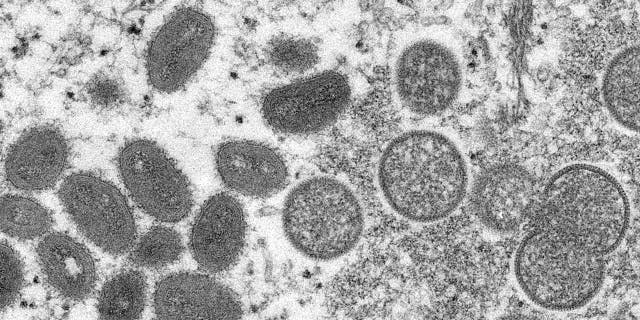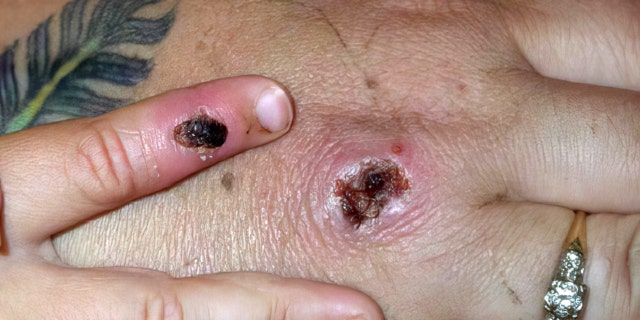Probable monkeypox cases reported in Philadelphia, Atlanta, Chicago, Los Angeles County

health Eshrag:
NEWYou can now listen to Fox News articles!
Health officials in multiple U.S. cities – including Philadelphia, Atlanta, Chicago, and Los Angeles County – reported probable cases of monkeypox on Thursday.
A man in the metro Atlanta area with a history of international travel has a probable monkeypox infection, pending confirmation of the test results by the CDC, Georgia health officials said Thursday.
Los Angeles County health officials reported their first case in a patient who recently had close contact with another infected individual while traveling. Three probable cases have previously been detected in Sacramento County.
Philadelphia and Chicago also reported their first probable monkeypox cases on Thursday.
At least 19 cases have been reported in 10 different states after Massachusetts confirmed the first U.S. case on May 18, according to the CDC.
In this Centers for Disease Control and Prevention handout graphic, symptoms of one of the first known cases of the monkeypox virus are shown on a patient’s hand from May 27, 2003.
(CDC/Getty Images)
Monkeypox belongs to the same genus of virus as smallpox and has similar symptoms, including fever, headache, and exhaustion.
MONKEYPOX VIRUS CASES : NYC IDENTIFIES 2 MORE POSSIBLE INFECTIONS
Within 1-3 days of the onset of symptoms, patients develop a rash that eventually turns into blisters. The virus is primarily spread through skin-to-skin contact with those infected, though it can also be spread through aerosols “during prolonged, face-to-face contact,” according to the CDC.

This 2003 electron microscope image made available by the Centers for Disease Control and Prevention shows mature, oval-shaped monkeypox virions, left, and spherical immature virions, right, obtained from a sample of human skin associated with the 2003 prairie dog outbreak.
(Cynthia S. Goldsmith, Russell Regner/CDC via AP)
The World Health Organization has confirmed more than 550 cases in 30 countries since England confirmed its first cases on May 6.
US MONKEYPOX CASES CLIMB, ANOTHER REPORTED IN COLORADO
“We’re seeing cases all appearing in a relatively short period of time. We’re seeing that in a few days, in a couple of weeks, we’re seeing over 500 cases. This is different. This has not been seen before,” Rosamund Lewis, WHO’s technical lead for monkeypox, said this week.

In this Centers for Disease Control and Prevention handout graphic, symptoms of one of the first known cases of the monkeypox virus are shown on a patient’s hand.
(CDC/Getty Images)
CLICK HERE TO GET THE FOX NEWS APP
Most cases worldwide have been “mainly reported amongst men who have sex with men,” according to WHO.
“At the moment, we are not concerned about a global pandemic,” Dr. Lewis said earlier this week. “We are concerned that individuals may acquire this infection through high-risk exposure if they don’t have the information they need to protect themselves.”
Noting that the news was copied from another site and all rights reserved to the original source.
xnxx,
xvideos,
porn,
porn,
xnxx,
Phim sex,
mp3 download,
sex 4K,
Straka Pga,
gay teen porn,
Hentai haven,
free Hentai,
xnxx,
xvideos,
porn,
porn,
xnxx,
Phim sex,
mp3 download,
sex 4K,
Straka Pga,
gay teen porn,
Hentai haven,
free Hentai,


